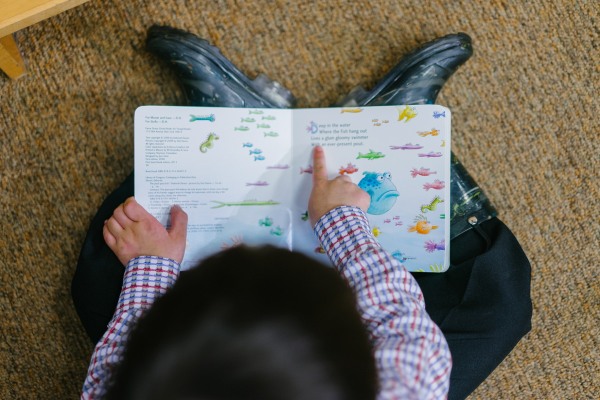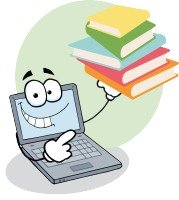Homeschool Reading Curriculum
As a parent, a homeschool reading curriculum was at the top of my mind when we started homeschooling. English was one of the requirements in our state, and what better way to learn English than to read?
Getting kids interested in and developing good reading habits is necessary as a parent. They should learn to recognize letters and their sounds at a very young age.
My oldest child started reading later than my other kids. However, I already taught him the alphabet when he was a toddler. I've always thought he could begin reading around 3-4 years old when he was about to go to school. With my conventional thinking, before we homeschooled, it didn't occur to me that kids can learn earlier than that.
Then, another child didn't say much at three years old. So, an idea came to me to get him to talk more than 2 to 3 words. I started cutting up some strips of paper printed with elementary words like I, we, me, a, sun, cat, dog, and the like. I printed a few at a time until we had so many words cut up. We generally do that for a few minutes a day. My son thinks it's a game, so sometimes, we would have the exercise a few times a day upon his request. It has built his confidence, and before long, he was already reading books. At four years old, he was one of the best readers in his class. Of course, this was before we started homeschooling.
One day, I read about a kid who started to read at 2. I also started to teach reading to my other child, who was around that age. Indeed, the experiment worked. My son was very eager to learn to read at a young age. He was reading a lot of words at the age of 3.
With books, we started with board books and later progressed on to picture books, early reader books, chapter books, middle-grade novels, tween novels, and so on. The important thing is to read with the children every day. Once they are used to it, they will keep moving forward.
I also include in their homeschool reading curriculum books on self-development to help them have the right mindset to motivate them and help them build a good character.

Homeschool Reading Curriculum Sample
I've done a bit of research and I found out that there are some parents who want to have an outline which they can use for their homeschool reading curriculum. Here is a homeschool reading curriculum outline from kindergarten to year 12
Kindergarten:
Introduction to Phonics:
Letter recognition and basic phonics.
Introduction to simple sight words.
Picture Books:
Interactive reading with colorful picture books.
Emphasis on storytelling and basic comprehension.
Emergent Readers:
Introduction to easy readers with simple sentences.
Encouragement of reading aloud.
Grade 1:
Phonics Mastery:
Strengthening of phonics skills with more complex letter combinations.
Expansion of sight word vocabulary.
Short Stories:
Introduction to short stories with clear plots.
Development of basic comprehension skills.
Reading Games:
Incorporation of reading games for an enjoyable learning experience.
Encouragement of independent reading.
Grade 2:
Building Fluency:
Focus on fluency through longer texts.
Exploration of chapter books with simple narratives.
Genre Exploration:
Introduction to different literary genres.
Encouragement of discussions about story elements.
Reading Comprehension:
Development of comprehension skills through questions and discussions.
Connection of reading to personal experiences.
Grade 3:
Literary Elements:
Deepening understanding of plot, characters, and setting.
Analysis of how literary elements contribute to the story.
Genre Study:
Exploration of a broader range of genres.
Encouragement of independent genre selections.
Classical Literature:
Introduction to classical literature with age-appropriate novels.
Discussion of themes and historical context.
Grade 4:
Critical Thinking:
Fostering critical thinking skills through more complex texts.
Encouragement of written reflections on readings.
Research Skills:
Introduction to basic research skills through reading.
Connection of reading to other subjects.
Book Reports:
Requirement of more detailed book reports.
Encouragement of expressing opinions about the readings.
Grade 5:
Analytical Reading:
Development of analytical skills through in-depth discussions.
Identification and analysis of literary devices.
Literature Circles:
Introduction of literature circles for group discussions.
Assignment of diverse reading selections.
Independent Reading Projects:
Allowance of students to choose and work on independent reading projects.
Emphasis on creativity in response to readings.
Grade 6:
Literary Analysis:
Engagement in deeper literary analysis.
Exploration of symbolism, foreshadowing, and character development.
Author Studies:
Study of works by specific authors.
Discussion of the author's writing style and themes.
Comparative Analysis:
Comparison and contrast of different works within a genre.
Encouragement of critical essays.
Grade 7:
Classic Literature Intensive:
Focus on more challenging classic literature.
Encouragement of independent exploration of classic novels.
Genre Diversification:
Exploration of a wide variety of genres.
Introduction of less conventional literary forms.
Research Papers:
Development of research and analytical writing skills.
Connection of readings to broader topics.
Grade 8:
Literary Criticism:
Engagement in discussions involving literary criticism.
Encouragement of forming and defending opinions.
World Literature:
Introduction to works from diverse cultures.
Discussion of global perspectives.
Advanced Research Projects:
Conducting more extensive research projects related to literature.
Emphasis on independent thinking.
Grade 9:
Literary Themes:
Exploration of literature with a focus on universal themes.
Encouragement of more profound reflection on the human experience.
Advanced Analysis:
Conducting in-depth analysis of complex texts.
Discussion of symbolism, allegory, and narrative structure.
Creative Writing:
Integration of creative writing assignments.
Encouragement of students to experiment with different writing styles.
Grade 10:
Literary Periods:
Study of literature from different historical periods.
Connection of readings to historical and cultural contexts.
Literary Theory:
Introduction to fundamental literary theories.
Discussion of how different lenses impact interpretations.
Advanced Research Papers:
Conducting cutting-edge research papers on literary topics.
Emphasis on synthesis of multiple sources.
Grade 11-12:
Advanced Literary Analysis:
In-depth exploration of complex literary works.
Emphasis on advanced literary devices and techniques.
Literary Criticism and Theory:
Further study of literary criticism and theoretical frameworks.
Application of diverse perspectives to literary analysis.
Independent Research Projects:
Undertaking independent research projects on literary topics of interest.
Encouragement of original insights and contributions to the field.
College-Level Reading:
Introduction to college-level reading materials.
Development of skills for handling more sophisticated texts.
Preparation for Advanced Placement (AP) Exams:
Preparation for literature-related AP exams if desired.
Emphasis on critical thinking and essay writing skills.
Creative Writing and Publishing:
Advanced creative writing projects.
Exploration of the publishing process for students interested in writing careers.
Individual curricula may vary based on specific goals, resources, and preferences. They should be adjusted to suit the needs of each student's pace.










